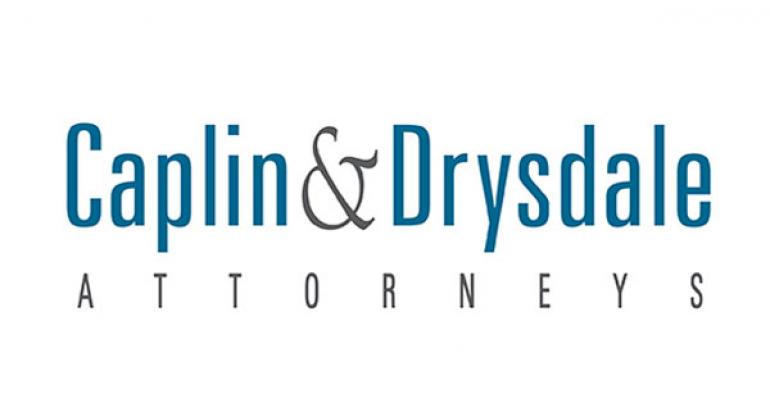As part of the American Taxpayer Relief Act of 2012, Congress made permanent the portability of estate tax exemption between spouses. Although this change was supposed to be a simplification for married couples, after a year of experience with it, we have concluded that it is anything but simple!
Under portability, if the first spouse to die does not use up all of his or her exemption from estate and gift tax, the executor of the first spouse's estate may elect to give the use of the remaining exemption to the surviving spouse. The surviving spouse can then use that exemption amount (the deceased spousal unused exemption amount, or DSUE) to make lifetime gifts or to shelter bequests at death. This provides an alternative to the traditional estate planning for wealthy married couples in which a credit shelter trust, or bypass trust, is set up when the first spouse dies in order to use up the deceased spouse's exemption. Now, with the top marginal estate tax rate set at 40% and the top income tax rate set at 39.6% (plus the 3.8% surtax in many cases), both estate tax and income considerations must be taken into account in planning. Drafting a flexible estate plan that allows circumstances at death to be considered before making the choice between portability and a credit shelter trust often will be the best option.
Set forth below are some of the most significant pros and cons of these alternative planning techniques as they would apply to a hypothetical couple, Ozzie and Harriet. We'll assume for purposes of this discussion that Ozzie will be the first spouse to die.
|
Credit Shelter Trust
|
vs.
|
Portability
|
|
Assets put in a credit shelter trust for the benefit of Harriet will appreciate outside of Harriet's taxable estate.
|
vs.
|
If portability is used, all of the couple's assets will pass to Harriet, along with Ozzie's unused exemption, but Ozzie's exemption, the DSUE amount, is not indexed for inflation.
|
|
Assets in the trust do not get a new (presumably higher) basis when Harriet dies.
|
vs.
|
Assets are included in Harriet's estate and get a new basis when Harriet dies.
|
|
Ozzie's GST exemption can be applied to the credit shelter trust.
|
vs.
|
Ozzie's GST exemption is wasted if he doesn't use it during life, unless a QTIP trust is used in conjunction with portability.
|
|
Ozzie's exemption is used for the benefit of the intended beneficiaries, with no possibility of loss through remarriage.
|
vs.
|
Harriet controls who gets the benefit of the DSUE amount. In addition, if Harriet remarries and does not use the DSUE amount before her new spouse dies, the DSUE amount received from Ozzie will be lost because he will no longer be her "last deceased spouse."
|
|
In a state with an estate tax but an exemption lower than the federal exemption (such as DC or Maryland), use of the full amount of the federal exemption will require payment of a substantial state estate tax. The state-law QTIP election in Maryland provides an option to avoid this issue.
|
vs.
|
In a state with an estate tax but an exemption lower than the federal exemption (such as Maryland or DC), complete reliance on portability will lead to loss of the state estate tax exemption.
|
|
If Ozzie's estate is below the dollar threshold for filing, no federal return needs to be filed. However, if the state has an estate tax with a lower filing threshold, a pro forma federal return may have to be prepared in any event.
|
vs.
|
Portability requires that Ozzie's estate file a federal estate tax return even if the value of the estate is below the filing threshold.
|
|
A credit shelter trust provides some asset protection for Harriet.
|
vs.
|
With portability, Harriet owns the assets, so there is no asset protection.
|
|
A credit shelter trust offers all of the advantages of trusts (management of the assets in case of incompetency or lack of interest, protection of the assets from undue influence, certainty that the remaining assets will pass to the intended beneficiaries, etc.)
|
vs.
|
Portability avoids the expense and inconvenience of a trust and gives Harriet complete control over the assets.
|
Which plan is better in any particular case turns on an analysis of many factors including:
-
The overall value of the estate
-
Anticipated increase in value of the assets
-
Anticipated estate, income tax, and capital gains tax rates applicable to the estate, the spouse and the ultimate beneficiaries of the estate
-
The rate of inflation
-
The types of assets that are owned
-
Age of the clients and the likely period of time between the two deaths
-
Applicable state law
-
Whether a surviving spouse is likely to remarry
-
Whether the couple has children from prior marriages
-
Whether it is important to be able to use the GST exemption
We would be happy to meet with you to review your current estate planning documents and develop a plan that best suits your circumstances and objectives.





